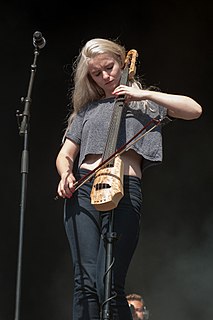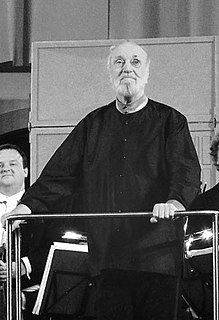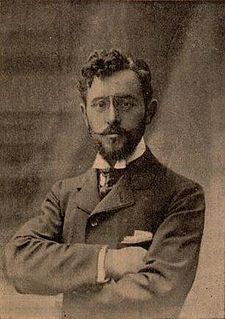A Quote by Paul Lansky
Very often, when you're listening to a piece for the first time, you're listening through a model of other pieces that you know. At a certain point, a piece becomes idiosyncratic and you start to understand it on its own terms.
Related Quotes
With repeated listenings, a piece eventually becomes its own being. I very often say to students that this is like meeting a person for the first time. When you first meet someone, you reference that person with others who are similar; but, as you get to know that person better, you begin to understand his unique qualities.
Have you ever had a moment where you finish a piece, and then all of a sudden the piece sort of takes on it's own life beyond you? It doesn't happen every time, but there are some pieces where that happens, and I love that. I feel like that's what I'm seeking nowadays, that moment of transcendence with a piece. Where this thing becomes larger than me as a person. It becomes otherworldly, and then I get separated as maker from it, and then it has it's own life. I love that.
Another thing about creation is that every day it is like it gave birth, and it's always kind of an innocent and refreshing. So it's always virginal to me, and it's always a surprise. ... Each piece seems to have a life of its own. Every little piece or every big piece that I make becomes a very living thing to me, very living. I could make a million pieces; the next piece gives me a whole new thing. It is a new center. Life is total at that particular time. And that's why it's right. That reaffirms my life.
The time I like listening to music most on headphones is, I have a game I play with my brother, he's a musician as well.And he sends me MIDI files of keyboard pieces. So, these are pieces where I just get a MIDI file; I don't know what instrument he was playing them on; I know nothing about his section of the sound of the piece, and then when I'm sitting on trains I do a lot of train travel I turn them into pieces of music. And I love to do that; it's my favorite hobby.
I came to what I think of as the critical problem: the aging process of a piece of music. I noticed in the '70s that pieces I wrote would sound great the first time I listened to them and then on repeated hearings they sounded older and older until what seemed exciting and vibrant on first listening became stale.
If you're listening to a symphony, you're getting all the information, including the audience around you, the delay from the sides of the concert hall, the whole thing. If one of those musicians is sharply out of tune or starts to play a different piece of music than all the others in the orchestra, you immediately notice. When you analyze systems by listening, you can just listen, and you can tell whether the system is healthy or unhealthy. What I've created for you is a perfect model of how we should be listening to our stock market, rather than trying to see it graphically.
Deep Listening is listening in every possible way to everything possible to hear no matter what you are doing. Such intense listening includes the sounds of daily life, of nature, or one's own thoughts as well as musical sounds. Deep Listening represents a heightened state of awareness and connects to all that there is. As a composer I make my music through Deep Listening
In my Deep Listening class at RPI, I always do an hour of energy exercises to start with. Then we do a listening meditation after that, after the body has been loosened up and warmed up and is ready. We do the listening. After that, there's the journaling of the experience, which they do each time throughout the semester to the point that I have them write a final paper on what they've experienced.
I feed on other people's creativity, photographers, artists of every kind. Sometimes a feeling that you get listening to a song can be so powerful. I've wanted to write whole scripts around what I felt just listening to a piece of music. I think music is important, and surrounding your visual field with stimulating things.


































